Looking for Global training? Go to https://firebrand.training/en or stay on the current site (United Kingdom)
TERMS AND CONDITIONS
Firebrand Training grants you a personal, non-exclusive, non-transferable license to access and use the site. You may download or print material from the site only for your own personal, non-commercial use. Please read our full terms and conditions.
Product Lifecycle vs. Project Lifecycle
- The Product Lifecycle is longer than the Project Lifecycle
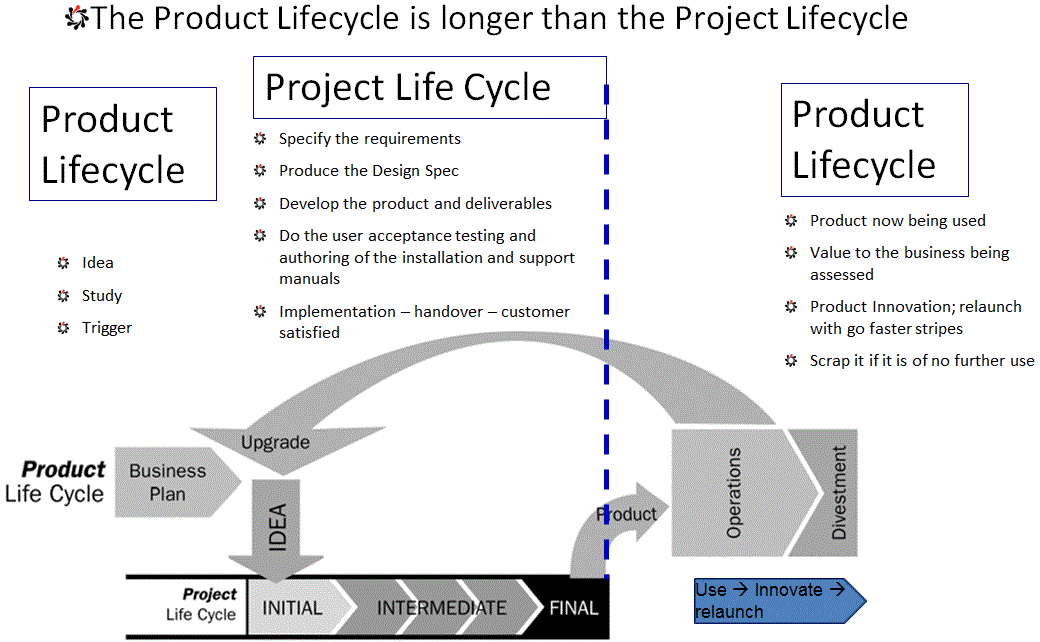
Phases or Sub Projects
- Projects can be split into 2 or more phases or sub-projects (also may be called stages)
- Normally sequential
- May overlap
- Sub-divisions of a larger project
- May be part of a programme or portfolio
- First phase is clearly defined, next phases may not be -> rolling wave planning = progressive elaboration
Predictive Lifecycles – aka fully plan driven
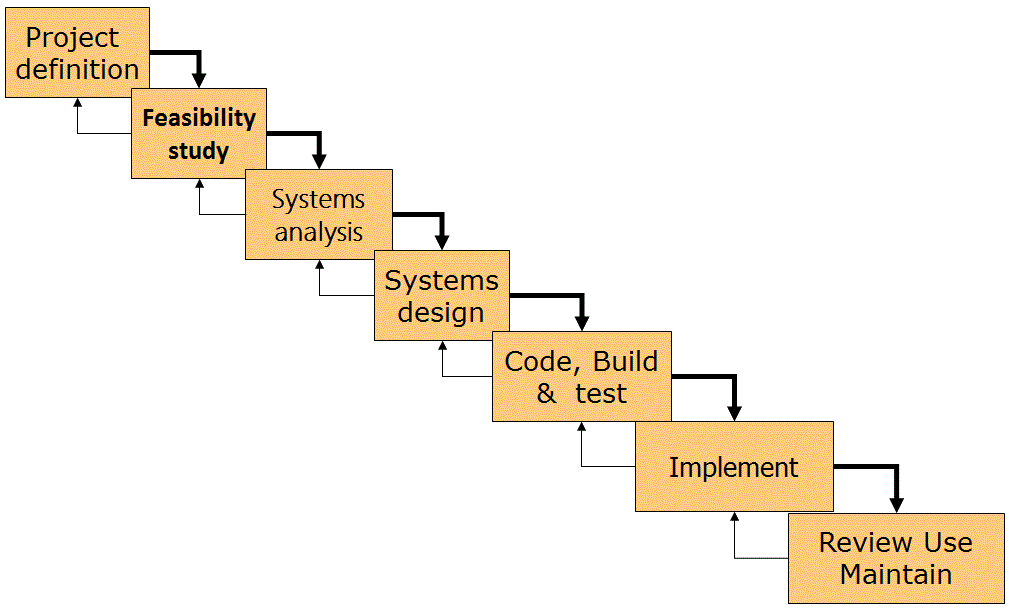
Iterative and Incremental Lifecycles
Iterations (phases)
- Project Vision overall, detailed scope is elaborated for each iteration
- Product developed and functionality added incrementally
- Activities from all PM Process Groups normally performed during each iteration
- At iteration end, a deliverable or a set of deliverables are completed and accepted by the customer
- Each iteration builds in lessons learned from previous
- Need to manage changing scope or objectives
Adaptive Lifecycles
- Aka change driven or Agile
- High levels of change and active stakeholder involvement
- Iterations are short; typically 2 to 4 weeks; fixed time and cost
- Product Backlog – set of requirements, defined by customer
- Self managing team s - decide which backlog items they will produce;
- Deliverables should be complete and ready for review
- If not complete, returned to product backlog
- Preferred when environment is rapidly changing, requirements difficult to specify at outset
The Project Life-Cycle
Level of uncertainty (risk of failing) and Stakeholders; Influence is:
- highest at the start of the project
- lowest towards the end
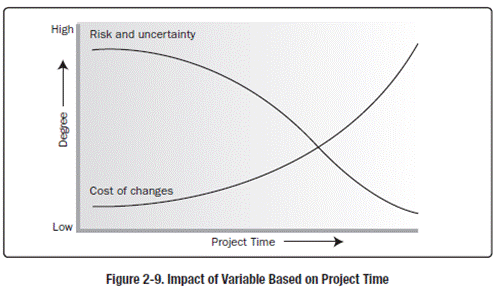
Cost of making changes is:
- lowest at the start of the project
- highest towards the end
Project Management Institute, A Guide to the Project Management Body of Knowledge, (PMBOK® Guide) – Fifth Edition, Project Management Institute Inc., 2013 Page 40 Figure 2-9
The 5 Process Groups in the Project Lifecycle
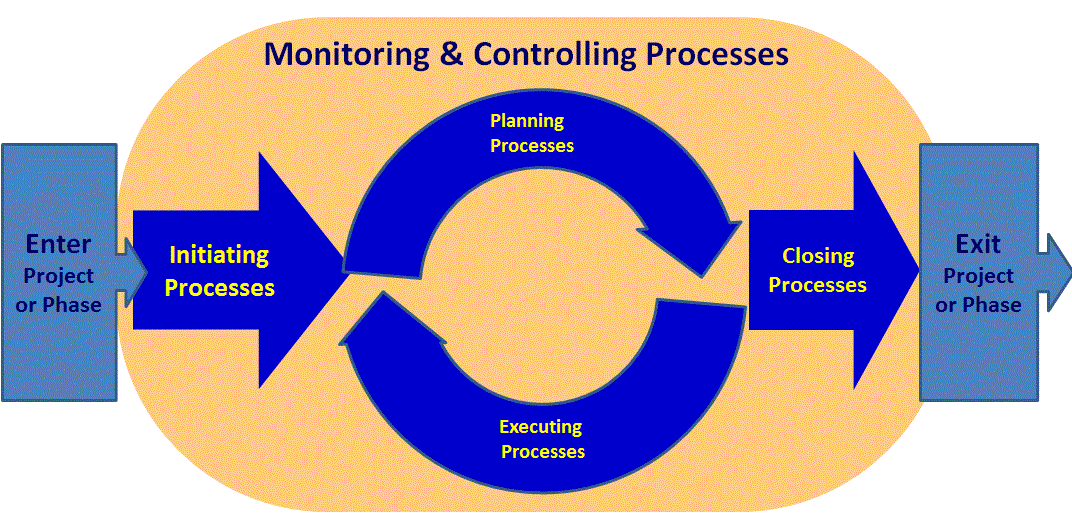
Project Management Institute, A Guide to the Project Management Body of Knowledge, (PMBOK®Guide) – Fifrth Edition, Project Management Institute Inc., 2013. Page 50 Figure 3-1
The Project Process Groups
- Initiating - Those processes performed to define a new project or a new phase of an existing project, by obtaining authorisation to start the project or phase
- Planning - Those processes performed to establish the total scope of the effort, define and refine the objectives, and develop the course of action required to attain these objectives
- Executing - Those processes performed to complete the work defined in the Project Management Plan to satisfy the project objectives
- Monitoring and Controlling - Required to track, review and regulate the progress and performance of the project, identify any areas in which changes to the plan are required, and initiate the corresponding changes
- Closing - Completing all the project or phase activities, both production and project management, to formally close the project or phase
The definitions shown above in italics are taken from the Glossary of the Project Management Institute, A Guide to the Project Management Body of Knowledge, (PMBOK® Guide) – Fifth Edition, Project Management Institute Inc., 2013
How Process Groups Overlap
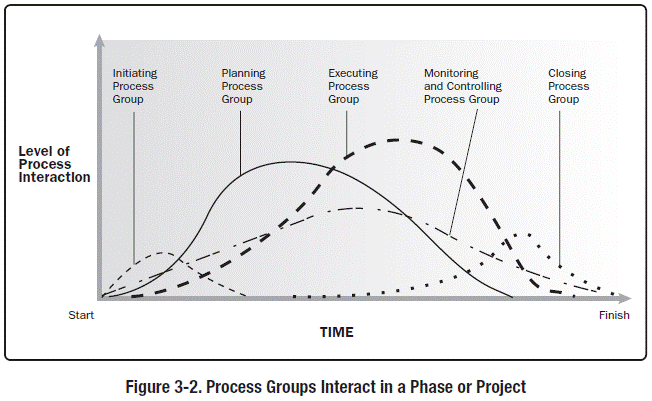
Project Management Institute, A Guide to the Project Management Body of Knowledge, (PMBOK® Guide) - Fifth Edition, Project Management Institute Inc., 2013 Page 51 Figure 3-2
Process Groups and Life Cycle Phases
- Process Groups are not Project Life Cycle Phases
- Project Life Cycle could be: Develop Concept -> Initial Design -> Detailed Design -> Prototype -> First Build -> Commission -> Test -> Secure -> Training -> Rollout
- Each phase could require all the Process Group processes
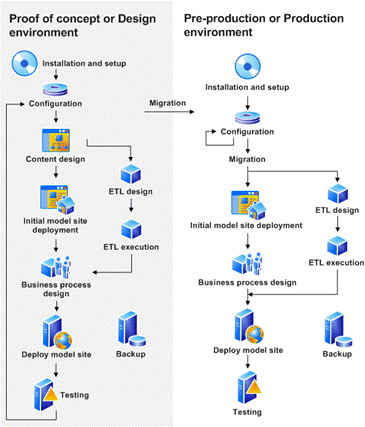
Source – technet.microsoft.com
What Next
Test your knowledge with a series of exercises, or get started on the next module now:
Exercise - Project Management Process Groups and Process
Next Module - Project Integration Management
Follow us on Google+ to get all the latest updates.
DISCLAIMER
Firebrand Training grants you a personal, non-exclusive, non-transferable license to access and use the site. You may download or print material from the site only for your own personal, non-commercial use. Read our full terms and conditions on https://firebrand.training/uk/learn/terms-and-conditions.
 Part of the BPP Education Group
Part of the BPP Education Group